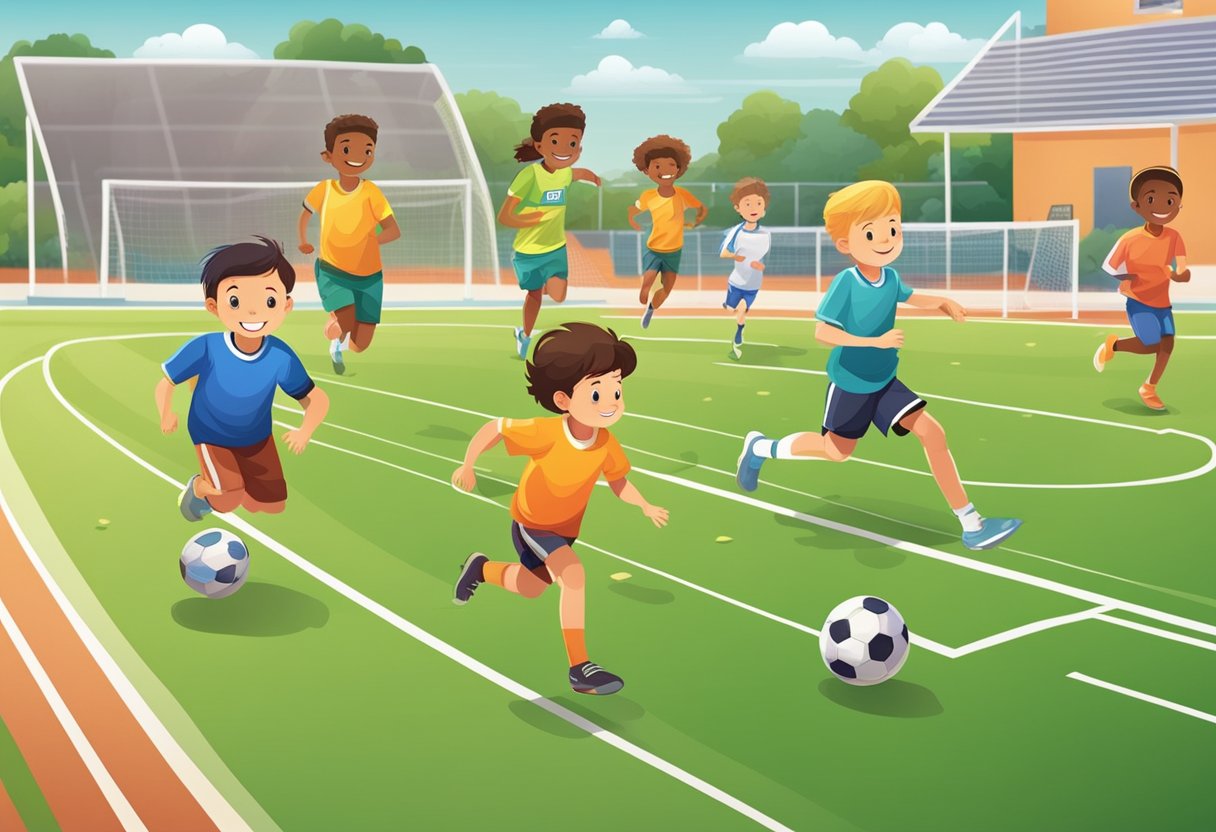Importance of Sports for Kids: Building Strong Bodies

Participating in sports is of importance in kids’ development. It not only promotes physical fitness but also helps in building character and developing social skills. Children who engage in sports learn valuable life lessons such as teamwork, perseverance, and resilience. In this article, we will explore the importance of sports for kids and how it can positively impact their lives.
Physical activity is crucial for children’s growth and development. Sports provide a fun and engaging way for children to get the recommended amount of exercise they need to stay healthy. Regular participation in sports is of importance to kids as it can help children maintain a healthy weight, build strong bones and muscles, and improve their overall physical fitness. Additionally, engaging in sports at a young age can establish healthy habits that can last a lifetime.
Beyond physical health benefits, sports can also have a positive impact on a child’s mental and emotional well-being. Participating in sports can boost a child’s self-esteem, improve their mood, and reduce stress and anxiety. Furthermore, sports provide an opportunity for children to build strong relationships with their peers and develop social skills such as communication, cooperation, and leadership. In the following sections, we will delve deeper into the various ways sports can benefit children.
Physical Health Benefits
Regular exercise is essential for the physical health of children. Engaging in sports activities can help children maintain a healthy weight, improve cardiovascular health, and build strong bones and muscles.
Encouraging Regular Exercise
Participating in sports can encourage children to engage in regular exercise. By making exercise a fun and social activity, children are more likely to continue participating in physical activity throughout their lives.
Developing Motor Skills
Sports can help children develop their motor skills, including hand-eye coordination, balance, and agility. These skills are important for children’s physical development and can help them perform everyday tasks with ease.
Preventing Childhood Obesity
Childhood obesity is a growing concern in many countries. Engaging in sports activities can help prevent childhood obesity by promoting physical activity and healthy habits. Regular exercise can help children maintain a healthy weight and reduce their risk of developing obesity-related health problems.
In conclusion, participating in sports can provide numerous physical health benefits for children. By encouraging regular exercise, developing motor skills, and preventing childhood obesity, sports can help children lead healthy and active lives.
Psychological Advantages
Participating in sports has numerous psychological benefits for children. In addition to improving physical health, sports can help build self-esteem, promote teamwork and cooperation, and reduce stress and emotional well-being.
Building Self-Esteem
Sports provide children with opportunities to develop self-confidence and a sense of accomplishment. Winning games, mastering new skills, and receiving praise from coaches and teammates can all contribute to a child’s self-esteem. Even when they face defeat or failure, children can learn to persevere and improve their skills, which can boost their confidence and resilience.
Promoting Teamwork and Cooperation
Team sports require children to work together towards a common goal, fostering a sense of teamwork and cooperation. Children learn to communicate effectively, respect each other’s strengths and weaknesses, and work towards a shared objective. These skills can be invaluable in other areas of life, such as school and work.
Stress Reduction and Emotional Well-being
Sports can also help children manage stress and improve their emotional well-being. Physical activity releases endorphins, which can help reduce stress and anxiety. Additionally, participating in sports can provide a healthy outlet for emotions and frustrations, allowing children to develop coping mechanisms and emotional regulation skills.
In conclusion, participating in sports can provide numerous psychological benefits for children, including building self-esteem, promoting teamwork and cooperation, and reducing stress and improving emotional well-being. Encouraging children to participate in sports can help them develop valuable life skills and improve their overall quality of life.
Social and Academic Development
Sports offer children a multitude of benefits, including improving their social skills, time management, discipline, and enhancing their academic performance.
Improving Social Skills
Participating in sports allows children to develop their social skills by interacting with their teammates, coaches, and opponents. They learn how to communicate effectively, work together as a team, and develop a sense of camaraderie. Additionally, they learn how to handle both success and failure, which can help them in their personal and professional lives.
Time Management and Discipline
Sports require a significant amount of time and effort, which can help children develop time management skills and discipline. They learn how to balance their academic and athletic commitments, prioritize their tasks, and manage their time effectively. This can help them become more organized and responsible individuals, which can benefit them in all aspects of their lives.
Enhancing Academic Performance
Participating in sports can also enhance a child’s academic performance. Studies have shown that regular physical activity can improve cognitive function, memory, and concentration, which can lead to better academic performance. Additionally, sports can help children develop a sense of discipline and motivation, which can translate into their academic pursuits.
Overall, sports can provide children with a multitude of benefits that can help them develop into well-rounded individuals. By improving their social skills, time management, discipline, and academic performance, children can gain valuable skills that can benefit them throughout their lives.

